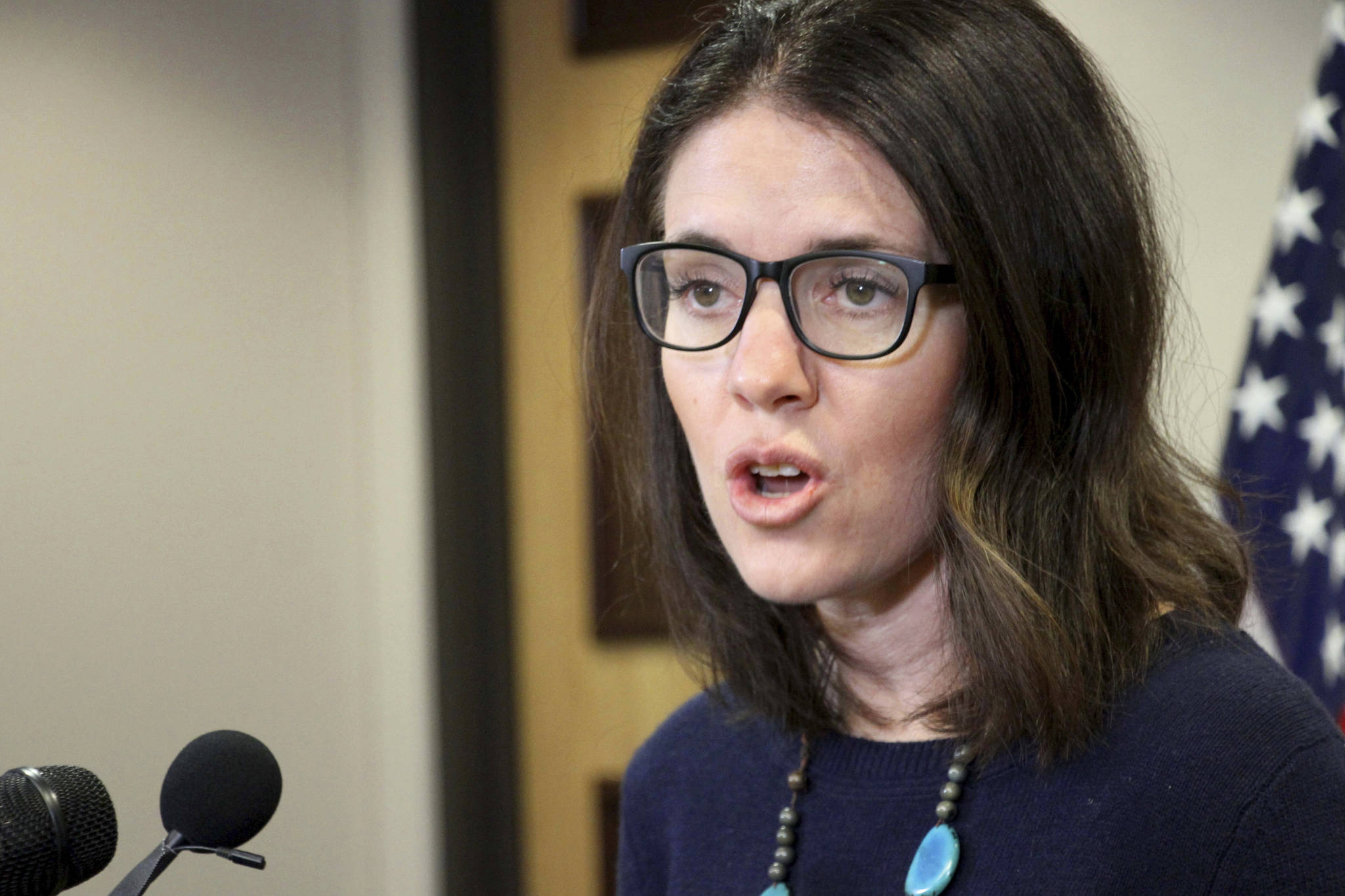The state began Tuesday providing daily updates on COVID-19, a disease caused by a coronavirus that first appeared in Wuhan, China, in late 2019.
The updates will be presented through press conferences and through a new website accessible to the public.
Gov. Mike Dunleavy and the state’s chief medical officer, Dr. Anne Zink, addressed the public in a Tuesday afternoon press conference. Dunleavy said that as Alaska prepares for the possible arrival of the virus, his office will update residents and the media on a daily basis and potentially more often as new information arises. Dunleavy said state health alerts containing recommendations, advisories and possibly mandates will also be issued as the need arises.
There are still no known confirmed cases of COVID-19 in Alaska. As of 12:30 p.m. on Tuesday, 47 Alaskans have been tested, with 16 tests still pending. As of Tuesday afternoon, the Centers for Disease Control and Prevention reported 647 confirmed cases of the disease nationwide.
The state created a webpage, coronavirus.alaska.gov, which gives up-to-date information on prevention measures, recommendations from the state health department and the Centers for Disease Control, and the count of how many people in Alaska and the U.S. have been tested for the COVID-19 disease.
Those who are elderly and have underlying heart and respiratory conditions like heart disease, diabetes or lung disease are most at risk for contracting COVID-19. The state is recommending older Alaskans, those over age 60, to stay home, avoid crowds, keep at least 6 feet apart from people who are sick and to work from home if possible. Large gatherings of people in the older age group is also discouraged, Zink said.
“The data that we see, every year of life, people are more and more at risk,” she said.
During the press conference, Zink encouraged Alaskans experiencing fever, chills and shortness of breath to call their health care provider before visiting a medical facility. Zink said health care providers across the state can take the sample and send it to be tested in batches in either Anchorage or Fairbanks. The state is not charging for the test, Zink said, however, some insurances may charge a copay or a deductible for an accompanying emergency room visit. Zink is asking Alaskans to wash their hands and use hand sanitizer “as much as you possibly can” and to not touch the face, eyes or nose.
The Department of Health and Social Services is moving forward with hiring health care professionals to work on education and prevention of the disease in rural Alaska. The positions are not impacted by the statewide hiring freeze that went into effect this week.
COVID-19 is a relative of the SARS and MERS viruses, which have caused outbreaks in the past. Symptoms for the disease include fever, runny nose, cough and breathing trouble. The elderly and those with weakened immune systems are particularly vulnerable to the disease.

